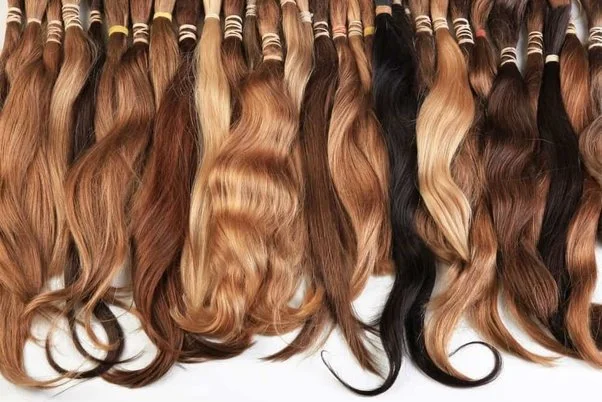When It Comes to Hair Extensions, How Much is Too Much to Pay?
In recent years, the cost of hair extensions and wigs in Nigeria has soared to eye-watering heights. With prices ranging from ₦500,000 for short styles to a staggering ₦3,000,000 for longer styles, many are left wondering: when it comes to hair extensions, how much is too much to pay?
For Nigerian women, wigs and human hair extensions sourced from countries like China, Brazil, India, and Korea have become more than just a fashion statement—they are a necessity. Whether for convenience, style, or personal preference, these hairpieces play a crucial role in daily life. However, the skyrocketing costs have made it increasingly challenging for many to keep up with this beauty standard.
Even the lesser quality alternatives, which are marginally cheaper, still represent a significant financial burden for their target market. A lower-end wig that might have been affordable a few years ago now comes with a hefty price tag, making it out of reach for many.
One of the worst consequences of the dollar fluctuations since 2020 has been the need to increase prices across the board to accommodate for resulting inflation. This economic shift has severely impacted the hair industry, with vendors hiking their markups to maintain profit margins regardless of new dollar rates. As a result, what was once a splurge has become a near-luxury item.
Aisha, a Lagos-based fashion enthusiast, laments, “I used to buy a new wig every few months, but now I can barely afford one a year. The prices are just ridiculous. I don’t know how they expect regular people to keep up.”
The high cost has driven some women to alternative styles. Braiding, which uses synthetic extensions, has seen a resurgence. “I’ve started braiding my hair more often,” says Chioma, a university student. “It’s not just about the cost, but also the maintenance. Wigs are becoming almost unaffordable and too high-maintenance for me.”
There are those who also argue that spending such large sums on hair is a worthless investment, especially when compared to assets like gold. “I used to buy expensive wigs, but now I invest that money in something more substantial,” says Nkechi, an entrepreneur. “Hair is just hair. It won’t appreciate in value.”
For those who can’t afford the cost yet are unwilling to give up their prized wigs, necessity has found a creative solution: wig rentals. This emerging business trend allows women to rent wigs, providing a way to enjoy high-quality hair without the upfront cost. The concept, while unconventional, has gained traction.
“Renting wigs has been a game-changer for me,” shares Funmi, a Lagos socialite. “I can have a new look every week without breaking the bank. Plus, it’s great for events and special occasions.”
The rise of wig rentals means that a single wig can see multiple heads in a week, each person paying a fraction of the purchase price for a day’s use. This practice, while economically savvy, also highlights the lengths women will go to maintain their desired appearance. Wig rentals come with their own set of challenges. Hygienic concerns and the wear and tear of sharing wigs among multiple users can affect the longevity and quality of the hair. Despite these issues, the rental market continues to thrive, underscoring the deep-seated demand for these beauty products.
Vendors, on their part, are doing what they can to stay afloat amidst fluctuating costs. “We have no choice but to increase our prices,” explains a hair luxury vendor in Lagos. “The cost of importing the hair has gone up, and we need to make sure we still make a profit. It’s tough on our customers, but it’s the reality of the market.”
While the hair extension industry grapples with these economic challenges, Nigerian women continue to find innovative ways to keep their hair game strong.
Ultimately, when it comes to hair extensions, how much is too much to pay? Would you spend 3 million Naira on a wig? If these vendors are still in business, then someone is buying. The answer may vary depending on individual circumstances, but one thing is clear: the pursuit of beauty, style, and self-expression remains a powerful driving force.










